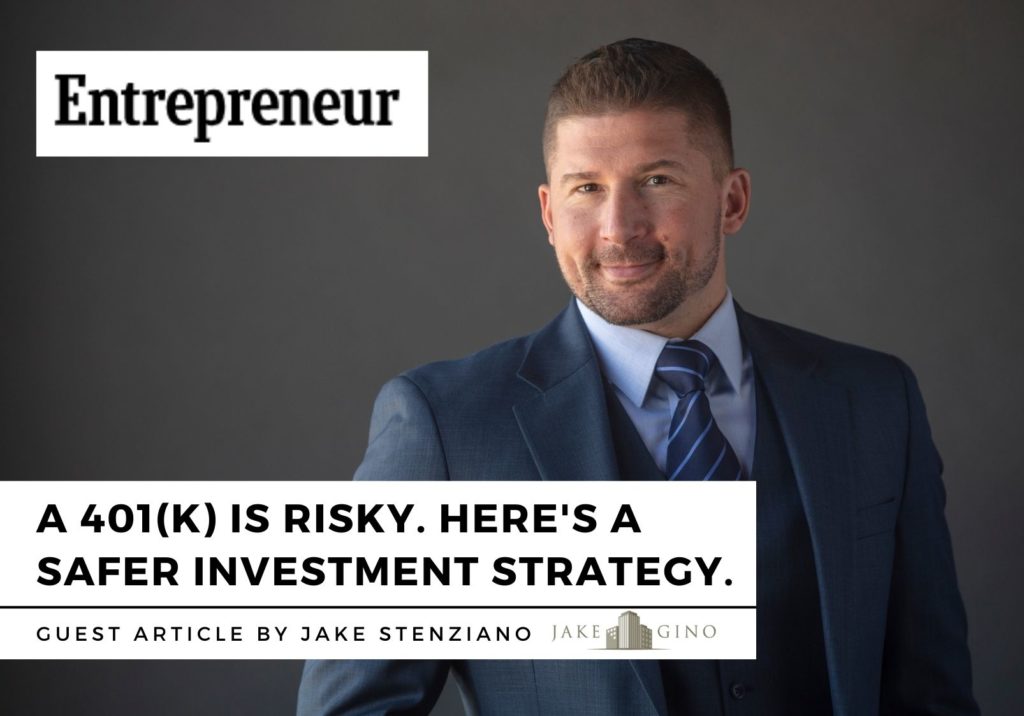
A 401(k) is Risky. Here’s a Safer Investment Strategy
[Excerpt from the article authored by Jake Stenziano, for Entrepreneur Magazine]
Real estate investment is arguably safer than traditional investment methods.
If you are reading this, you are likely wondering if there is an alternative to 401(k) to grow your wealth rapidly. Traditionally, investment vehicles such as the 401(k), where you invest throughout your career and do not see your funds until after retirement, have been considered the safest way to grow your money.
But is it really safe? In 401(k), you rely on compound interest to grow your money over a period — say 40 or 50 years. You have no access to this money during this time. In the case of most retirement accounts, you cannot take distributions until you reach the age of 59-60.
And when the time does come to withdraw money, typically after retirement, there is very little left because taxes work against investors. Gains are treated as ordinary income, taxed as high as 35%, and if you wish to take out your money early, you are penalized for it with an additional 10% penalty tax. Even if an investor needs the money and wants to take it out, they will still be penalized. In terms of returns, investors get a raw deal because they have no control over their investments.
There are many restrictions on investments with a company 401(k) plan. For instance, investments are limited to traditional investment options, such as exchange-traded funds (ETFs) and mutual funds. When adjusted for taxes and fees, returns from 401(k) investments tend to be lower, which can stop you from achieving your financial freedom goals.
Fortunately, there is an alternative way to grow your money steadily and have access to it before your retirement years. Investing in multi-family properties is an excellent option for those facing retirement or even for the young. Real estate has always been known for its high returns, especially multi-family properties.
Investing in apartment complexes pays the investor an assured sum of money every month. Ideally, an investor should look to make a minimum of $100 per unit every month from their property. This additional income will cover expenses such as education fees, medical expenses, a wedding or a vacation.
Investors must understand that you cannot build wealth by saving money. Inflation and other factors diminish the purchasing power of money over time. Consider the US dollar, which has lost 42% of its value since 2000. A $100 in 2000 is equivalent in purchasing power to about $172.05 today.
Read further on Entrepreneur media website.






